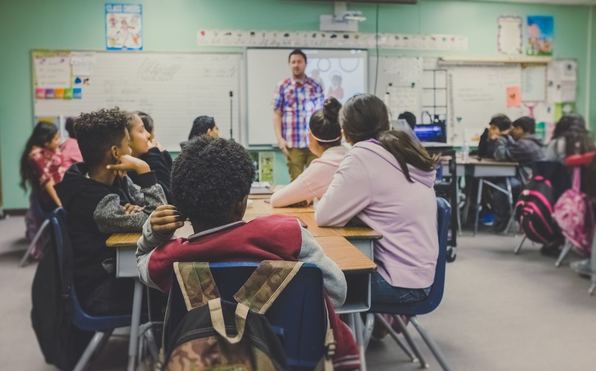
Are K-12 educators in that same camp? Will the nation’s educational system embrace automation to the extent that the skills we’ve developed as teachers will become redundant? First, let’s look at how A.I. plays a role in the classroom today.
What Role Does A.I. Play in Education Today?
The question of whether or not we should replace the traditional educational experience with online solutions is up for debate — and largely dependent on each individual student’s needs. Nevertheless, the concept of personalized online instruction is gaining traction. Certain A.I. learning software platforms are capable of assessing a student’s ability, accessibility needs, and learning preferences. Through the analysis of big data, software is capable of estimating a student’s inclinations based on demographic information. As this technology further blends into society and becomes more advanced, it could radically change the educational system as we know it.
Will It Eliminate Traditional Education?
In fact, this change is already being felt today in higher education. This is mostly seen in the transformative impact of online learning technology. As noted by Subhash Kak, writing for Smithsonian.com: “Unless universities move quickly to transform themselves into educational institutions for a technology-assisted future, they risk becoming obsolete.” These institutions need to explore ways for A.I. to improve the educational experience and reduce the cost of education in order to stay competitive. Similarly, traditional K-12 schools will need to take advantage of A.I. in order to remain relevant in the 21st century.
Nevertheless, taking part in online learning programs presents its own challenges that parents and educators need to keep in mind. While A.I.-assisted software can provide instruction at a pace that best serves student needs, the benefits of peer collaboration and face-to-face instruction cannot be ignored. Students enrolled in online courses today often need to make an effort to form relationships with instructors and students in order to make online learning more like a traditional educational experience.
Some commentators have a radical view of the future of education. Sir Anthony Seldon, a historian and political analyst, argues that teachers will be completely replaced by intelligent machines within the next 10 years. Current educators, he argues, will become “little more than classroom assistants … They will remain on hand to set up equipment, help children when necessary and maintain discipline.” In theory, A.I.-assisted personalized learning software will offer individualized instruction to meet the needs of every student.
While it’s unlikely that educators and administrators will uniformly cede the future of education to our inevitable robot overlords in such a short time frame, it’s difficult to validate or contest these predictions. However, they indicate two important truths: (1) teachers need to be willing and able to adopt new technology to best serve students, and (2) educators need to come to a common understanding of technology’s role in the classroom.
Best Practices for A.I. Integration
As you assess new applications and platforms for consideration in your classroom, or as you reevaluate those you currently use, consider:
- What is the purpose?: When students engage with the application during class, what will its role be? What will your role be? If software provides further structure to instruction or helps students organize information or collaborate, it is being used constructively. If it supplants your role as a teacher, reconsider your choice to use it.
- Creation over consumption: Does the technology place an emphasis on content creation or consumption? Some personalized learning software works as little more than as ineffectual digital workbooks, while others engage students with creative, thought-provoking activities.
- FERPA regulations: As A.I.-assisted programs individualize content to suit student needs, what information about the student is collected? Who has access to this data? If there is any chance that using an application could put student information at risk, refrain from using it.
Whether or not teachers will play a secondary role to A.I. is uncertain, but there is no question that it will play a major role in future developments in K-12 education. A.I.’s impact will not only be determined by the potential of applications and platforms that take advantage of it, but by how we, as educators, define its role.
In order to provide balanced instruction — a holistic approach involving peer collaboration, individualized instruction, and key components of socialization — we need to integrate it with deliberate purpose. As you find opportunities to adopt such applications in your classroom, understand the implications it may have for the future of education.
About the author:
Bob Hand is a blogger from Boise, ID. He studied English with an emphasis on Secondary Education at the University of South Carolina, and continues to keep a pulse on current issues in education. His hobbies include reading and collecting vinyl records. You can follow him on Twitter @bob_hand567.













